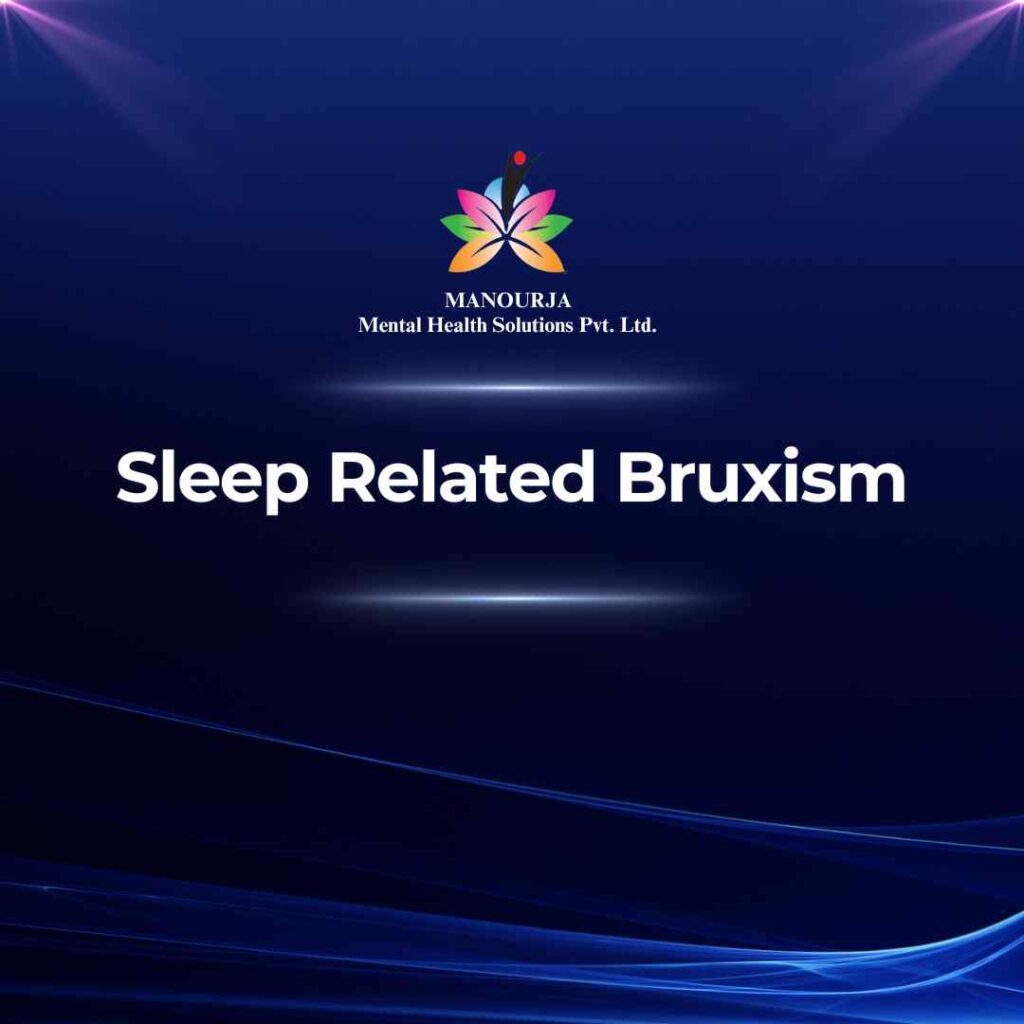Sleep related Bruxism

Sleep-related bruxism is a condition characterized by grinding or clenching of the teeth during sleep. It is considered a sleep-related movement disorder and can lead to a variety of dental and muscular problems if not managed effectively.
Symptoms of Sleep-related Bruxism
- Teeth Grinding or Clenching: The most obvious sign of sleep-related bruxism is involuntary and forceful grinding or clenching of the teeth during sleep, which is often loud enough to wake a sleeping partner.
- Jaw Discomfort or Pain: Frequent grinding can lead to muscle soreness in the jaw, discomfort, and even chronic pain.
- Tooth Wear and Damage: Over time, bruxism can lead to excessive wear and tear on teeth, damaging the enamel, and potentially resulting in broken teeth or restorations.
- Headache: Morning headaches are common among those who clench or grind their teeth at night.
- Earache: The intense contraction of the jaw muscles can cause pain that feels like an earache, although the pain is actually not originating from the ear.
Forms of Sleep-related Bruxism
Sleep-related bruxism is generally categorized simply as a nocturnal behavior, although it can also occur during waking hours (awake bruxism). The condition may vary in frequency and severity, with some individuals experiencing it nightly and others only during times of stress or other triggers.
Treatment of Sleep-related Bruxism
Managing sleep-related bruxism often involves a combination of dental approaches, lifestyle changes, and medical treatment:
- Mouthguards or Dental Splints: The most common treatment for bruxism is the use of a mouthguard, which is worn during sleep to protect the teeth from the forces of grinding and clenching. These devices can prevent further dental damage and reduce jaw strain.
- Stress Reduction: Since stress is a common trigger for bruxism, techniques for managing stress, such as yoga, meditation, counseling, and exercise, can be beneficial.
- Behavioral Modifications: Being conscious of and avoiding jaw clenching during the day can help reduce the habituation of the behavior. Techniques such as jaw relaxation exercises and proper jaw alignment practices can also be helpful.
- Medications: In some cases, medications may be prescribed to relieve pain or help reduce the occurrence of bruxism. These can include muscle relaxants, anti-anxiety drugs, or in some cases, botulinum toxin (Botox) injections to temporarily reduce muscle activity.
- Dental Correction: If bruxism has led to significant dental issues, corrective treatments such as reshaping the chewing surfaces of the teeth or using crowns may be necessary to repair the damage and prevent further deterioration.
- Biofeedback: For some individuals, biofeedback techniques can help manage bruxism. This approach uses monitoring procedures and equipment to teach the control of muscle activity in the jaw.
- Sleep Hygiene and Management: Good sleep practices, such as maintaining a regular sleep schedule, ensuring a comfortable sleeping environment, and avoiding stimulants before bedtime, can improve sleep quality and reduce bruxism episodes.
Consultation with a dentist and possibly a sleep specialist is recommended for individuals who suspect they might be experiencing sleep-related bruxism. These professionals can provide a proper diagnosis and tailored treatment plan to manage and mitigate the effects of this condition.
At MANOURJA, we believe in the transformative power of counseling. Our experienced therapists offer a safe and supportive space where you can explore your thoughts, emotions, and challenges. Through personalized counselling sessions, we’ll work together to develop coping strategies, build resilience, and achieve lasting positive change. Discover the path to a healthier, happier you with MANOURJA counselling services.
MANOURJA Rehabilitation Services
At MANOURJA, we’re dedicated to helping you in rebuild your life, after difficult times. Our rehabilitation services focus on understanding what you need to move forward, whether you’re recovering from addiction, trauma, or any psychological – social challenges. We create personalized plans, that are all about helping you, regain your strength and find hope again. With a caring team by your side, you’ll have the support to make real progress and take steps toward a brighter, healthier future.
